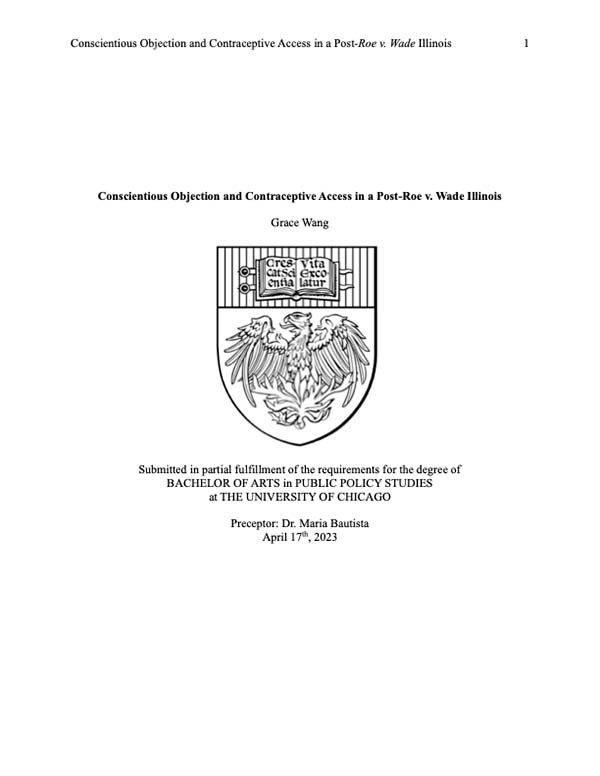Conscientious Objection and Contraceptive Access in a Post-Roe v. Wade Illinois
Publicación
Idioma
Autoría
Resumen
In medicine, conscientious objection refers to the refusal of health care professionals to provide
certain services due to ethical, moral, or religious beliefs. Though often unrecognized, the
practice of conscientious objection is commonplace in Illinois, a state with a significant presence
of Catholic hospitals and legal clauses protecting health care professionals who refuse to provide
reproductive care. Contraceptive access in Illinois has become increasingly complicated by
Dobbs v. Jackson Women’s Health Organization, a 2022 U.S. Supreme Court landmark decision
which retracted the previously held federal constitutional right to abortion. This study contributes
to the growing body of literature on conscientious objection to reproductive care by constructing
a landscape of contraceptive access in Illinois after Dobbs. Interviews were conducted with
fifteen health care providers and scholars of various fields in reproductive health. Relevant
themes were analyzed in the context of racial, socioeconomic, and geographical disparities in
contraceptive access. Results reveal the onus of seeking care to be increasingly placed on the
patient, escalating conflicts between religious institutions and state legislation, and heightened
stress in providers at religious institutions. These outcomes have resulted in a greater workload
for reproductive care providers in secular institutions and the muddling of the definition of
conscientious objection. With future threats to contraceptive access potentially looming, the
policies proposed concern lawmakers, providers, and patients alike, as stakeholders in the
effective delivery of reproductive care. Recommendations also address racial, socioeconomic,
and geographical disparities in contraceptive access in hopes of drawing attention to an often-
overlooked barrier to reproductive care access.

